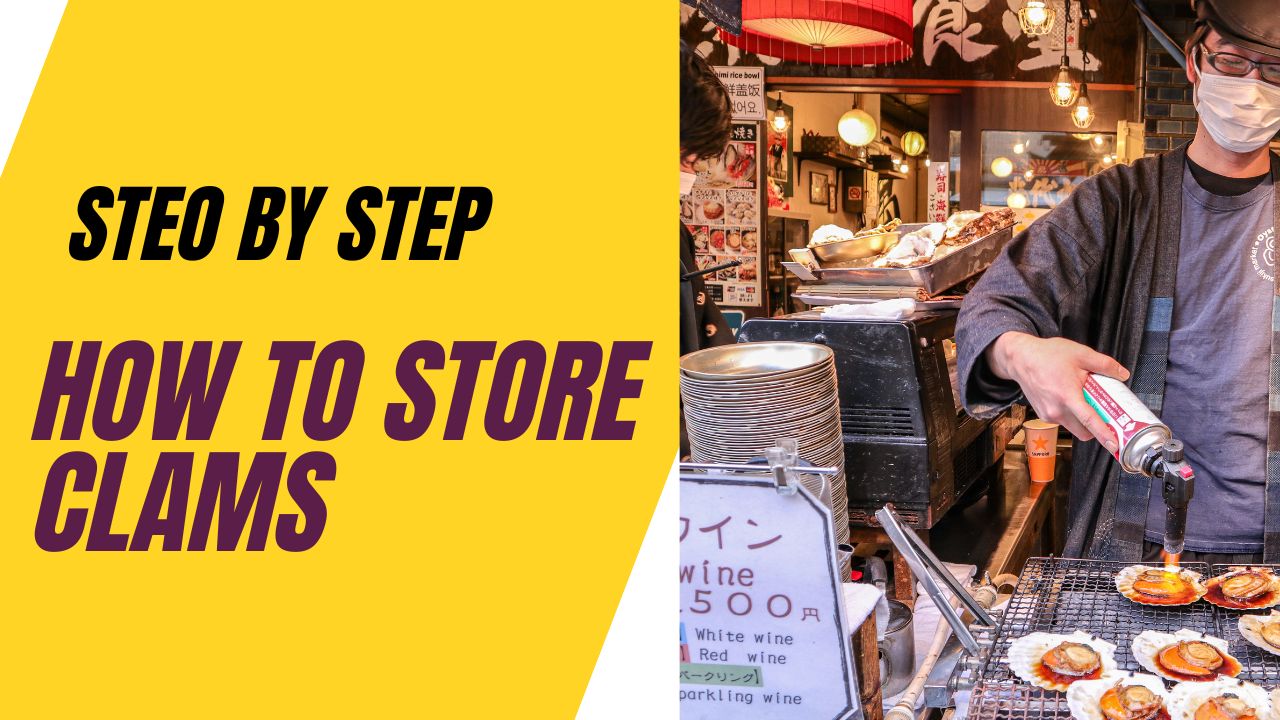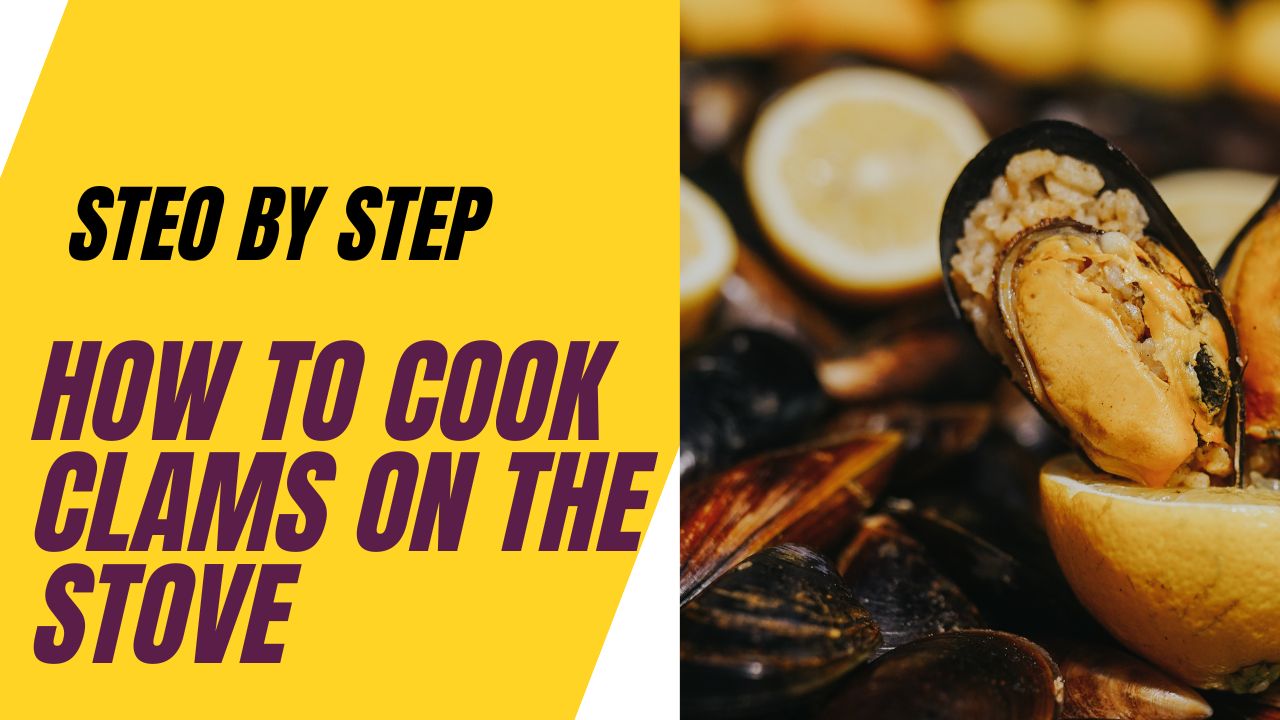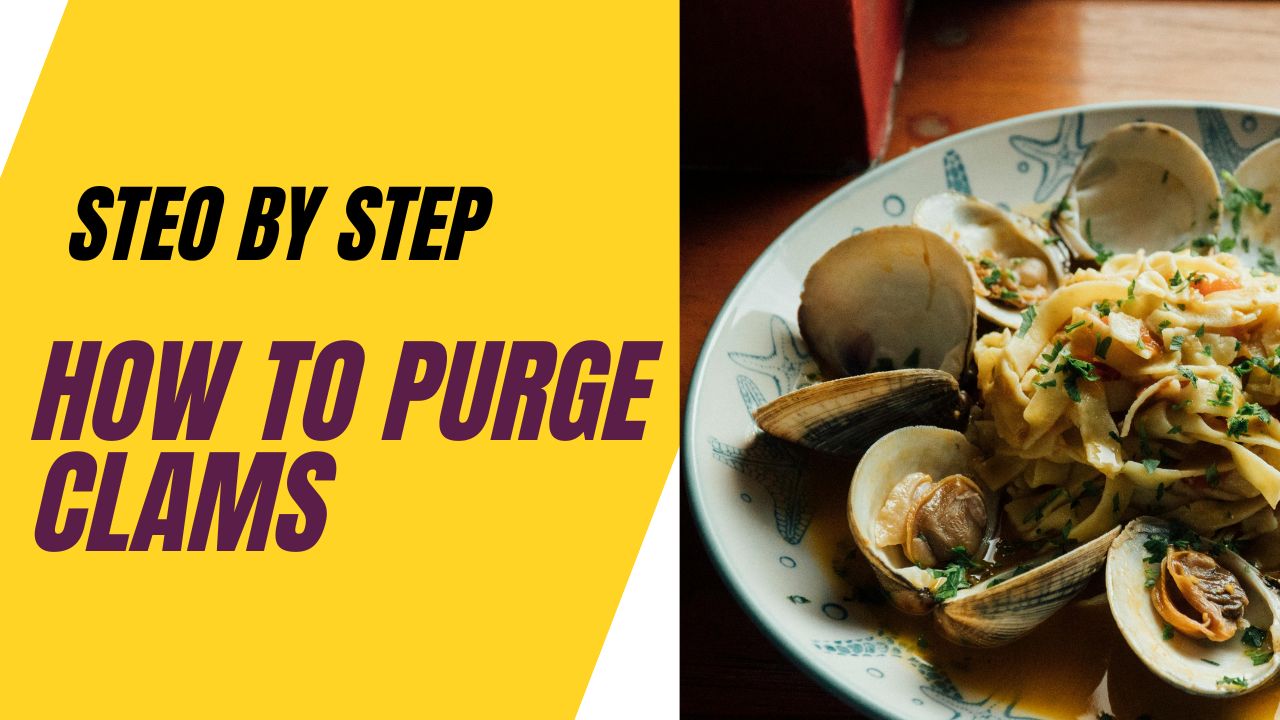Clams are a delicious and versatile seafood option that can be enjoyed in a variety of dishes. However, storing clams properly is essential to ensure their freshness and flavor are preserved. In this blog post, we will provide you with a step-step guide on how to store clams effectively.
Cleaning and Preparing Clams
Before storing your clams, it is important to clean and prepare them properly. Start by rinsing the clams under cold running water to remove dirt or debris. Discard any clams that are open or cracked as they may be spoiled. It is also a good idea to scrub the shells with a brush to remove any remaining impurities.
Storing Clams in the Refrigerator
Once your clams are cleaned and prepared, it is time to store them in the refrigerator. Place the clams in a shallow dish and cover them with a damp cloth or paper towel. This will help to keep the clams moist and prevent them from drying out. Make sure to store the clams in the coldest part of the refrigerator, typically the bottom shelf, to maintain their freshness.
Storing Clams in the Freezer
If you are not planning to use your clams right away, you can also store them in the freezer. Start by shucking the clams and removing them from their shells. Place the clams in an airtight container or freezer bag and seal them tightly. Make sure to label the container with the date so you can keep track of how long the clams have been stored
Checking for Freshness
It is important to check the freshness of your clams before using them in your recipes. Fresh clams should have a mild, briny smell and should feel heavy for their size. If the clams have a strong, fishy odor or feel light, they may be spoiled and should be discarded. Additionally, any clams that do not close when tapped should also be thrown away.
Cooking with Clams
Once your clams are properly stored and checked for freshness, you can enjoy them in a variety of delicious dishes. From classic clam chowder to flavorful pasta dishes, clams are a versatile ingredient that can elevate any meal. Remember to cook your clams thoroughly to ensure they are safe to eat. With these simple steps, you can store and enjoy fresh clams in your favorite recipes.
FAQ: How to Store Clams
Q1: How should I store live clams before cooking? A: Store live clams in the refrigerator in a breathable container. Cover them with a damp cloth or paper towel to keep them moist. Do not store clams in an airtight container or in water.
Q2: How long can live clams be stored in the refrigerator? A: Live clams can be stored in the refrigerator for up to 2-3 days. Ensure they are kept cold and discard any clams that have cracked shells or do not close when tapped.
Q3: Can I freeze live clams for later use? A: It’s not recommended to freeze live clams as they may die and become unsafe to eat. Cook clams first, then freeze them for up to 3 months.
Q4: How should I store cooked clams? A: Store cooked clams in an airtight container in the refrigerator for up to 2-3 days. Ensure they are cooled completely before storing to maintain freshness.
Q5: Can I store cooked clams at room temperature? A: It’s safest to store cooked clams in the refrigerator rather than at room temperature to prevent bacterial growth.
Q6: How do I reheat cooked clams? A: Reheat cooked clams gently in a saucepan with a bit of water or broth until heated through. Avoid overheating to prevent them from becoming tough.
Q7: Should I store leftover clam broth or cooking liquid? A: Yes, you can store leftover clam broth or cooking liquid in a separate airtight container in the refrigerator for up to 3 days or freeze it for later use.
Q8: What should I do with clams that do not open during cooking? A: Discard clams that do not open during cooking as they may not be safe to eat.
Q9: Can I store clams in freshwater? A: No, do not store clams in freshwater as it can kill them. They should be stored in cold, salted water if purging or in the refrigerator.
Q10: How can I tell if stored clams are still fresh? A: Fresh clams should have tightly closed shells or ones that close when tapped. Discard any clams with cracked or open shells before cooking


